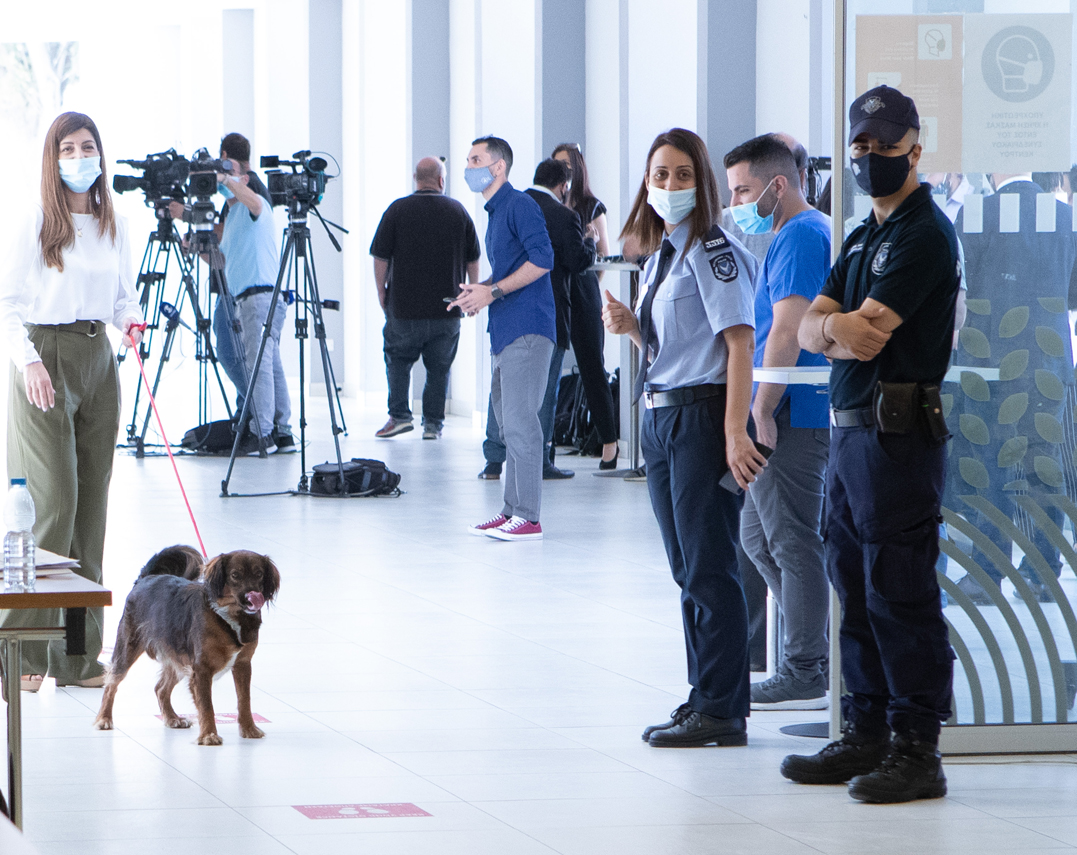Fifteen political parties and civic groups submitted a total of 659 candidates Wednesday contesting 56 seats in the upcoming parliamentary elections in Cyprus, where a majority is not expected to be achieved by any single party.
The mainstream political parties are expected to get a battering in the May 30 polls, with 557,589 eligible to cast their votes, up from 542,915 in the 2016 elections.
However, a general sense of frustration and apathy among the public may see a voter turnout at about 70%, at best.
The dire economic situation, corruption, and the handling of the Covid crisis have been at the forefront of the campaign expected to intensify over the next three weeks.
None of the incumbent parties had secured a 29-seat majority in the previous elections.
The ruling administration’s Democratic Rally (DISY) had 18 seats, opposition communist AKEL 16, the centre-right Democratic Party (DIKO) 9, the socialist EDEK 3, the Citizens’ Alliance of former Foreign and Trade Minister Yiorgos Lillikas with 3, former Euro-MP Eleni Theocharous’ Solidarity with 3, the Greens with two and the ultra-nationalist ELAM with two deputies.
However, the 12th session of the House of Representatives is expected to change these numbers as Lillikas has withdrawn from politics after losing his MPs to other parties, and opinion polls show the four main groups losing at least one parliamentary seat.
The Greens and ELAM are widely expected to increase their presence in the House, where 3.6% of national votes are required to enter parliament, regardless of the seats being allocated per district.
In all, 659 candidacies were submitted, of whom 651 proposed by the 15 political parties and civic groups, and eight were independent candidates.
Opposition AKEL filed an official complaint after the election law was recently changed, allowing only the official party name to be printed on the ballot and not the name of an alliance or coalition.
As a result, the ‘Independents’ movement head Anna Theologou broke up her joint ballot with the hunters’ party, renaming her group the ‘Allagi Genias’ (Generation Change) party.
Newcomer parties
The party ballot papers will include newcomers Democratiki Parataxi (DEPA), an offshoot of DIKO headed by former House Speaker Marios Garoyian that has split the latter’s supporters, ‘Ammochostos Yia tin Kypro’ headed by historian and community activist Anna Marangou, who has placed the return of Famagusta and its refugees at the forefront of the campaign, and the Animal Party of animal lovers who have tried before and other smaller fringe groups.
Nicosia district accounts for 20 seats, contested by 241 party candidates and three independents, Limassol has 12 seats with 138 candidates and three independents, Famagusta is represented by 11 seats challenged by 127 party candidates and one independent, Larnaca has six seats contested by 67 party candidates and one independent, Paphos has four seats with 45 party candidates and Kyrenia has three seats contested by 33 candidates.
Nicosia has most registered voters (196,194), followed by Limassol (115,002), Famagusta (114,194), Larnaca (58,333), Paphos (45,050) and Kyrenia (28,816).
Included in all the districts are 712 Turkish Cypriots, with a further 50 enclaved persons voting in Kyrenia district and 197 in Famagusta district.
In all, there will be 1,160 polling stations, where provisions will be made to accommodate Covid-infected voters in separate booths. There will also be 10 overseas voting centres.
Armenian MP re-elected
Vartkes Mahdessian, the three-term Armenian community representative, will probably be the first House member to be declared on Thursday when a 24-hour objection period on his unopposed candidacy expires.
The Orthodox Armenians, the Catholic Maronites with roots that hail back to Lebanon, and the Catholic Latins are constitutionally considered minority ‘religious groups’, as the Republic established in 1960 differentiated only two communities – the Greek Cypriot and the Turkish Cypriot – and thus did not have a ‘majority’ or ‘minority’.
The three religious groups opted to fall under the Greek Cypriot community, and the three representatives are in addition to the 56 House seats, with limited legislative powers.
However, they need to be consulted on education, ethnic and religious matters.
The Maronites will have two candidates in the upcoming elections, incumbent Yiannakis Mousas and Petros Nacouzi, while the Latins will have three – incumbent Antonella Mantovani, Michalis Sophocleous and Eliana Fakhouri.
These communities will be casting their votes in 16 separate election stations.
Campaigning ends 48 hours before election day. The first exit polls will probably be released at 6 pm on May 30, unless Covid restrictions delay the voting process and election centres have to remain open longer.










